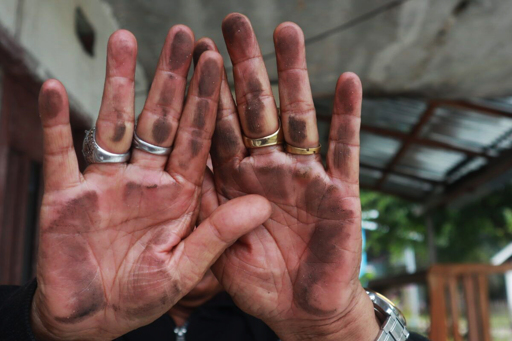BENGKULU, Indonesia — Yesi held her daughter Helda tightly, but the little one still shivered for days in the tropical heat over Teluk Sepang, a bay on Sumatra’s west coast. “Her cough hasn’t stopped for 10 days now,” Yesi told Mongabay Indonesia. “I feel so sorry for her.” Many parents like Yesi say it’s a sanctioned coal power plant, majority-owned by a Chinese state enterprise, that’s to blame for sickening the children in Teluk Sepang, here on the southern fringe of the city of Bengkulu. “Almost every child has had this acute respiratory infection,” said Mimi Elzakiah, a health worker who has served the Teluk Sepang community for the last seven years. “Sometimes they get better, but then they relapse.” Data from the public health clinic in Teluk Sepang showed 53 children, including seven babies, received treatment for acute respiratory infection diagnoses during October last year. In December, the number of children diagnosed was 72. That reflects a large share of young people in Teluk Sepang, a coastal enclave of just 3,549 people, where almost half of the population are children under 15. The power plant faces the Indian Ocean on a thin hook of land sheltering a natural anchorage south of Bengkulu, which is today shared by a clutch of small fishing boats with chipped paint, and the bulkier traffic moored in a state-owned port. Between 2020 and 2023 coal operator PT Tenaga Listrik Bengkulu (TLB) received three separate sanctions for noncompliance by Indonesia’s environment ministry. In 2022, the…This article was originally published on Mongabay
From Conservation news via this RSS feed


